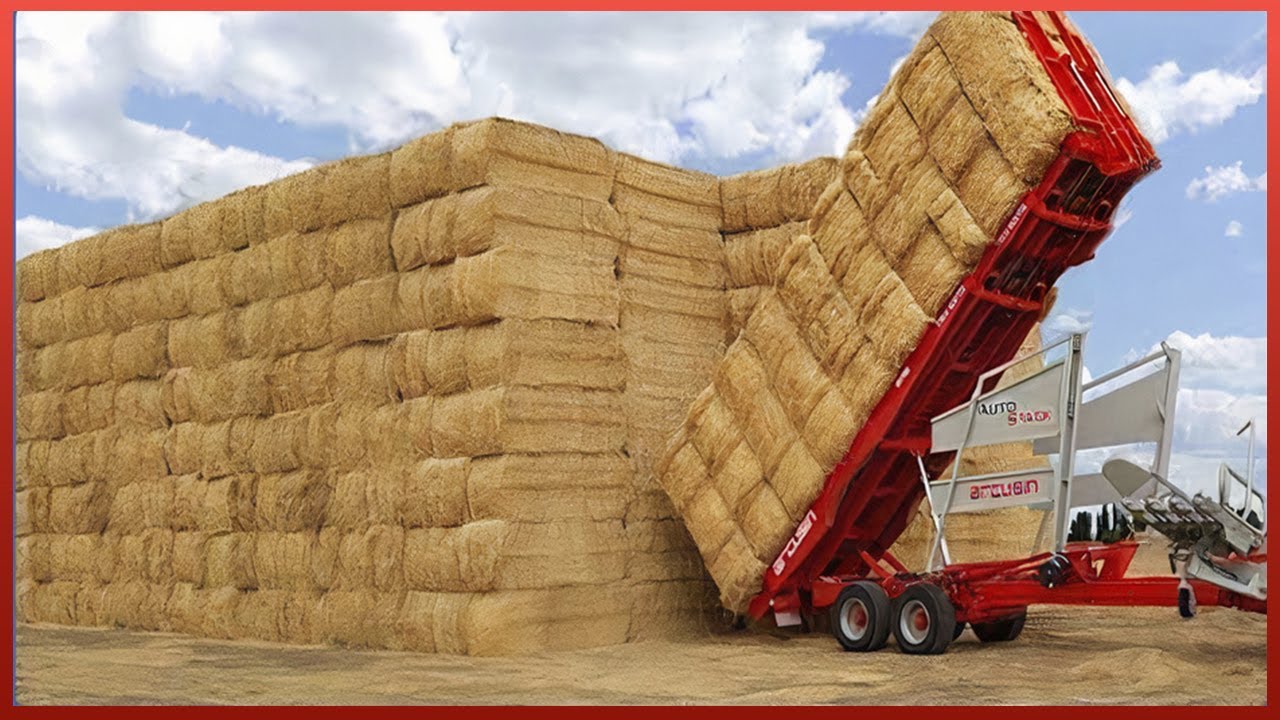In the contemporary landscape of agriculture, technological advancements have revolutionized the way we cultivate, harvest, and process crops. Modern agriculture machines have transcended traditional farming methods, introducing efficiency, precision, and sustainability to the field. This article explores some of the cutting-edge agricultural machinery that is taking farming to another level.

1. **Autonomous Tractors:** The advent of autonomous technology has ushered in a new era of efficiency in agriculture. Autonomous tractors, equipped with GPS systems and advanced sensors, can navigate fields with remarkable precision. These machines optimize planting, cultivating, and harvesting processes, minimizing waste and maximizing yields. Farmers can now focus on strategic decision-making while these intelligent tractors handle routine tasks autonomously.
2. **Precision Planters:** Precision is paramount in modern agriculture, and precision planters have become instrumental in achieving optimal crop density. These machines utilize advanced technology to precisely place seeds at predetermined intervals, depths, and spacing. This not only ensures uniform crop growth but also maximizes the efficient use of resources, such as water and fertilizers.

3. **Drone Technology:** Drones have become indispensable tools in agriculture, offering a bird’s-eye view of fields and providing valuable data for crop management. Equipped with high-resolution cameras and sensors, drones can monitor crop health, assess field topography, and even distribute pesticides or fertilizers with pinpoint accuracy. This technology enables farmers to make data-driven decisions for better yield and resource management.
4. **Harvesting Robots:** Harvesting crops has traditionally been a labor-intensive process, but modern agriculture is witnessing the rise of harvesting robots. These robotic systems are designed to selectively pick fruits and vegetables with precision, reducing the reliance on manual labor. With computer vision and machine learning, these robots can identify ripe produce, ensuring a more efficient and cost-effective harvesting process.

5. **Smart Irrigation Systems:** Water scarcity is a significant challenge in agriculture, and smart irrigation systems are addressing this issue head-on. These systems utilize sensors and real-time data to optimize the irrigation process, delivering the right amount of water precisely where and when it’s needed. By minimizing water wastage, smart irrigation contributes to sustainable farming practices and cost savings for farmers.
6. Vertical Farming Technology: In urban environments or areas with limited arable land, vertical farming has emerged as a game-changer. Utilizing advanced hydroponic and aeroponic systems, vertical farms can produce crops in vertically stacked layers. LED lighting, climate control, and automated nutrient delivery systems ensure optimal conditions for growth, resulting in higher yields and reduced environmental impact.
7. **Soil Health Monitoring Tools:** Maintaining soil health is essential for sustainable agriculture, and modern tools are providing farmers with real-time insights into soil conditions. Sensors and monitoring devices can assess soil moisture levels, nutrient content, and microbial activity. Armed with this information, farmers can make informed decisions about irrigation, fertilization, and crop rotation to promote soil fertility and long-term sustainability.

modern agriculture machines are transforming the agricultural landscape, offering solutions to age-old challenges and ushering in an era of precision and sustainability. As technology continues to advance, the synergy between agriculture and innovation holds the promise of feeding the growing global population while minimizing environmental impact and resource usage. These machines are not just tools; they represent a new frontier in the evolution of farming practices.



